Meet Your Exist Team
Meet the Exist Team
Chief Executive Officer
Chief Executive Officer
Anthony Fletcher
Professional Questions
Human & Personal Life Questions
What is your area of expertise in mental health, and how long have you been practicing?
Coming soon...
What motivated you to pursue a career in the mental health field?
Coming soon...
What is your favorite part about working with the population Exist Centers treats?
Coming soon...
What do you love most about working at Exist Centers?
Coming soon...
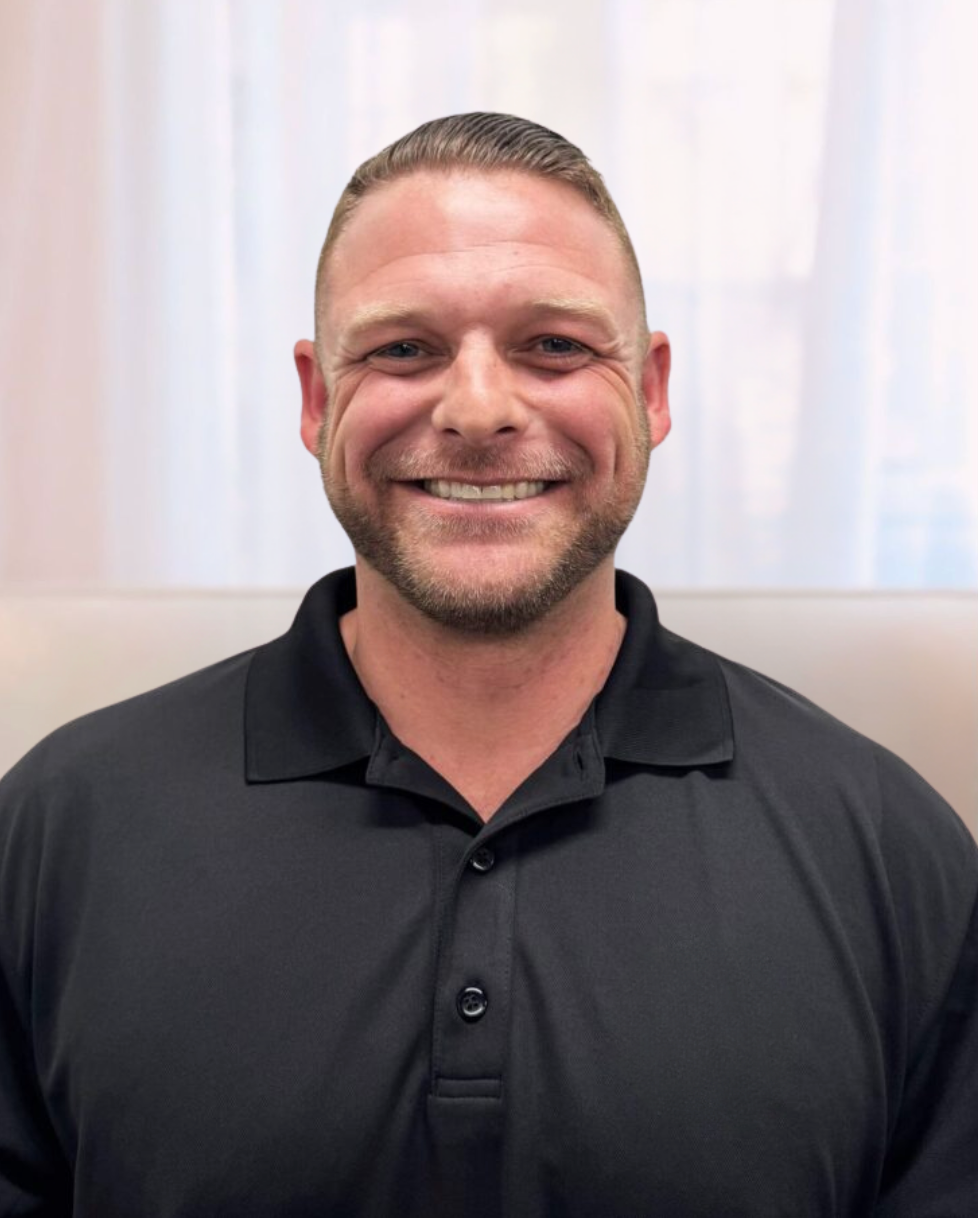
What is one experience in your life that has shaped who you are today?
Coming soon...
What is something that brings you joy outside of work?
Coming soon...
What drives your passion for helping others?
Coming soon...
How do you prioritize self-care in your daily life?
Coming soon...
What makes you feel grateful to be alive, or what makes you feel glad to exist?
Coming soon...
Anthony Fletcher
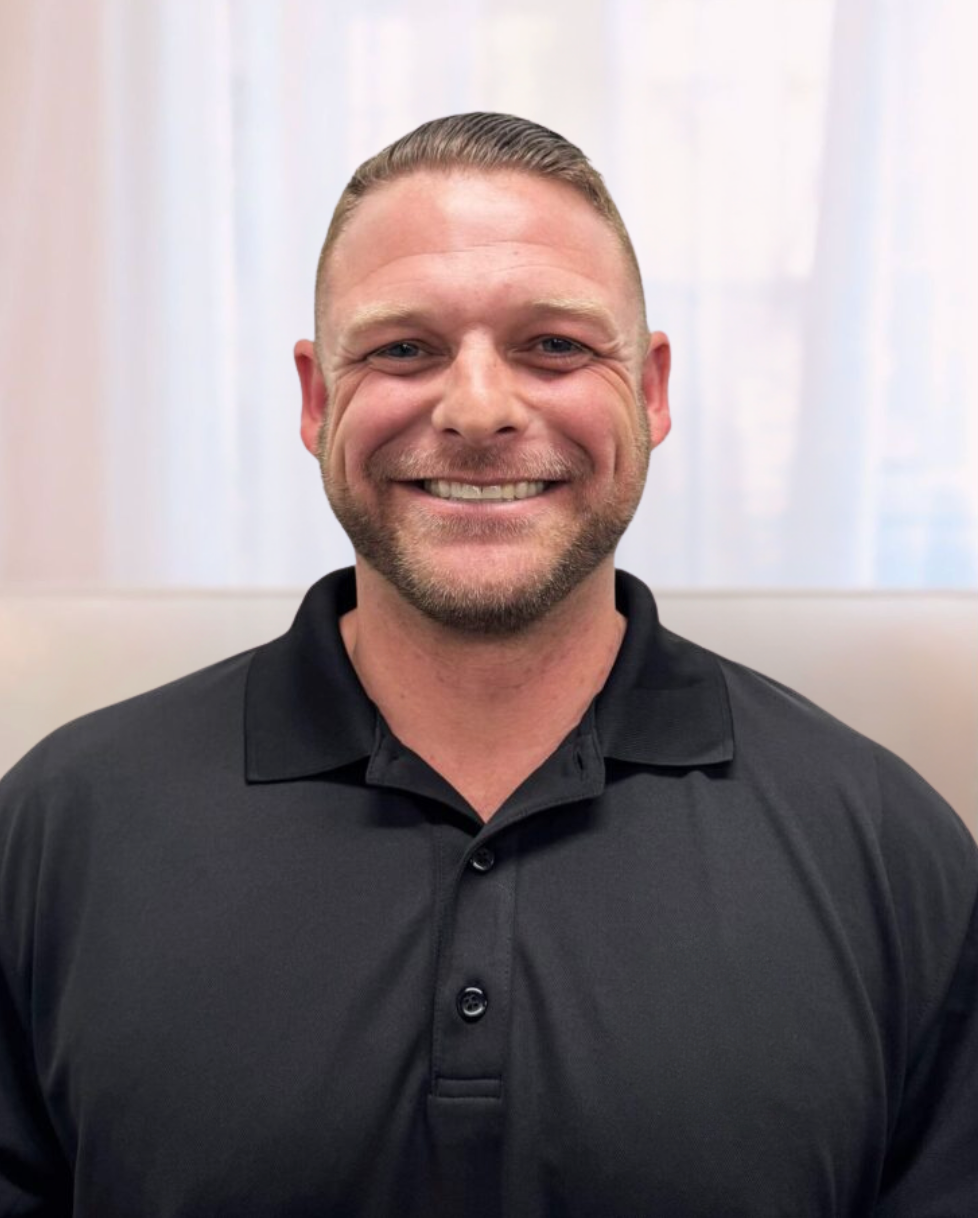
Professional Questions
What is your area of expertise in mental health, and how long have you been practicing?
Coming soon...
What motivated you to pursue a career in the mental health field?
Coming soon...
What is your favorite part about working with the population Exist Centers treats?
Coming soon...
What do you love most about working at Exist Centers?
Coming soon...
Human & Personal Life Questions
What is one experience in your life that has shaped who you are today?
Coming soon...
What is something that brings you joy outside of work?
Coming soon...
What drives your passion for helping others?
Coming soon...
How do you prioritize self-care in your daily life?
Coming soon...
What makes you feel grateful to be alive, or what makes you feel glad to exist?
Coming soon...
Founder + Chief Clinical Officer
Founder + Chief Clinical Officer
Dr. Courtney Tracy, LCSW, PsyD, CCTP, C-PD, C-DBT
Professional Questions
Human & Personal Life Questions
What is your area of expertise in mental health, and how long have you been practicing?
I specialize in the clinical treatment of Borderline Personality and Substance Use Disorder. I am a Certified Clinical Trauma Professional, a Certified Personality Disorder Treatment Provider, and am soon to be a Certified Dialectical Behavioral Therapist. I hold a CA-state license as a Clinical Social Worker, and am currently registered as a Psychological Associate. I have been practicing for 12 years, with my entire career dedicated solely to people struggling with co-occurring substance use and mental health problems.
What motivated you to pursue a career in the mental health field?
For a long time throughout my life, I struggled with wanting to exist, due to life experiences that led to my own borderline and substance use diagnoses. Working as a clinician, providing others the life-saving treatment I desperately needed as a client, through a lens of humanness and expertise, is a dream come true.
What is your therapeutic approach, and how do you believe it benefits clients?
I approach clients through research-based, integrative interventions and an overall existential lens. I developed Exist Centers to encompass all aspects of my clinical philosophy, which includes: Existentialism, Somatic Integration, Cognitive Behavioral, and Psychoanalytic Analysis. Clients and loved ones can grasp this as: I work with clients by helping them understand life and being alive, get to know their body, learn about their brain and mind, and rewrite the stories they tell themselves.
What is your favorite part about working with the population Exist Centers treats?
They are me. They are treatable. And they have some of the biggest hearts and kindest souls I've ever met. I also enjoy providing such effective treatment for them. For people who are told constantly that they “can’t change”, helping them see (and experience) that they can is wonderful.
What do you love most about working at Exist Centers?
It’s a place I know people are getting the best care they can, and I feel really proud of that.

What is one experience in your life that has shaped who you are today?
Seeing that what I’d been promised, “a life worth living”, did in fact happen when I started healing myself. I see this in my children, my career, my marriage, and my mental health.
What is something that brings you joy outside of work?
The time I spend with my children. It’s more meaningful than I could have ever imagined.
What drives your passion for helping others?
I believe in the ability to heal and I’ve seen it. Knowing this truth is what drives me.
How do you prioritize self-care in your daily life?
I practice what I preach and I accept people for the way they are, adjusting myself and my boundaries/priorities as needed.
What makes you feel grateful to be alive, or what makes you feel glad to exist?
A lot of things! The biggest is the ability to love and be loved.
Dr. Courtney Tracy, LCSW, PsyD, CCTP, C-PD
Dr. Courtney Tracy is the Founder and Executive Clinical Director of Exist Centers. She is a USC-trained, licensed doctoral-level clinician with over 10 years of experience in the behavioral health field. Dr. Courtney developed Exist Centers because for a long time, she didn't want to exist (due her own personal substance use and mental struggles.) Now, she serves the team by ensuring every decision made in our programs is made with excellent clinical client care in mind.
Dr. Courtney is a Certified Clinical Trauma Professional (CCTP) and a Certified Personality Disorder Treatment Provider (C-PD). She holds a Masters in Social Work and a Doctorate in Clinical Psychology. Dr. Courtney has a proven track record of success in founding and directing

co-occurring (mental health + substance use) treatment centers, developing and implementing evidence-based and purpose-driven clinical programs, and advocating for mental health reform.
Dr. Courtney is also an award-winning mental health public figure who has spoken at national conferences, been featured in numerous publications, including the New York Times and the LA Times, and is respected by both her clinical field and the general population.
A SoCal native (born, raised, and currently residing), Dr. Courtney prides herself on treating the communities she and her family live, work, and play in. Dr. Courtney has been with her husband for 18 years and they have two young children.
Dr. Courtney Tracy,
LCSW, PsyD, CCTP, C-PD, C-DBT

Professional Questions
What is your area of expertise in mental health, and how long have you been practicing?
I specialize in the clinical treatment of Borderline Personality and Substance Use Disorder. I am a Certified Clinical Trauma Professional, a Certified Personality Disorder Treatment Provider, and am soon to be a Certified Dialectical Behavioral Therapist. I hold a CA-state license as a Clinical Social Worker, and am currently registered as a Psychological Associate. I have been practicing for 12 years, with my entire career dedicated solely to people struggling with co-occurring substance use and mental health problems.
What motivated you to pursue a career in the mental health field?
For a long time throughout my life, I struggled with wanting to exist, due to life experiences that led to my own borderline and substance use diagnoses. Working as a clinician, providing others the life-saving treatment I desperately needed as a client, through a lens of humanness and expertise, is a dream come true.
What is your therapeutic approach, and how do you believe it benefits clients?
I approach clients through research-based, integrative interventions and an overall existential lens. I developed Exist Centers to encompass all aspects of my clinical philosophy, which includes: Existentialism, Somatic Integration, Cognitive Behavioral, and Psychoanalytic Analysis. Clients and loved ones can grasp this as: I work with clients by helping them understand life and being alive, get to know their body, learn about their brain and mind, and rewrite the stories they tell themselves.
What is your favorite part about working with the population Exist Centers treats?
They are me. They are treatable. And they have some of the biggest hearts and kindest souls I've ever met. I also enjoy providing such effective treatment for them. For people who are told constantly that they “can’t change”, helping them see (and experience) that they can is wonderful.
What do you love most about working at Exist Centers?
It’s a place I know people are getting the best care they can, and I feel really proud of that.
Human & Personal Life Questions
What is one experience in your life that has shaped who you are today?
Seeing that what I’d been promised, “a life worth living”, did in fact happen when I started healing myself. I see this in my children, my career, my marriage, and my mental health.
What is something that brings you joy outside of work?
The time I spend with my children. It’s more meaningful than I could have ever imagined.
What drives your passion for helping others?
I believe in the ability to heal and I’ve seen it. Knowing this truth is what drives me.
How do you prioritize self-care in your daily life?
I practice what I preach and I accept people for the way they are, adjusting myself and my boundaries/priorities as needed.
What makes you feel grateful to be alive, or what makes you feel glad to exist?
A lot of things! The biggest is the ability to love and be loved.







Chief Operations Officer
Chief Operations Officer
Max Tracy, BA
Professional Questions
Human & Personal Life Questions
What is your area of expertise in mental health, and how long have you been practicing?
I’m dedicated to ensuring the mental health facilities we run allow our staff and clients to feel safe and get what they need. I have background education and degrees in psychology, philosophy, and entrepreneurship. I’m an expert in behavioral health systems and structures, overall compliance, and environment of care as it relates to our highest quality standards. I’ve been in the behavioral health field for 7 years.
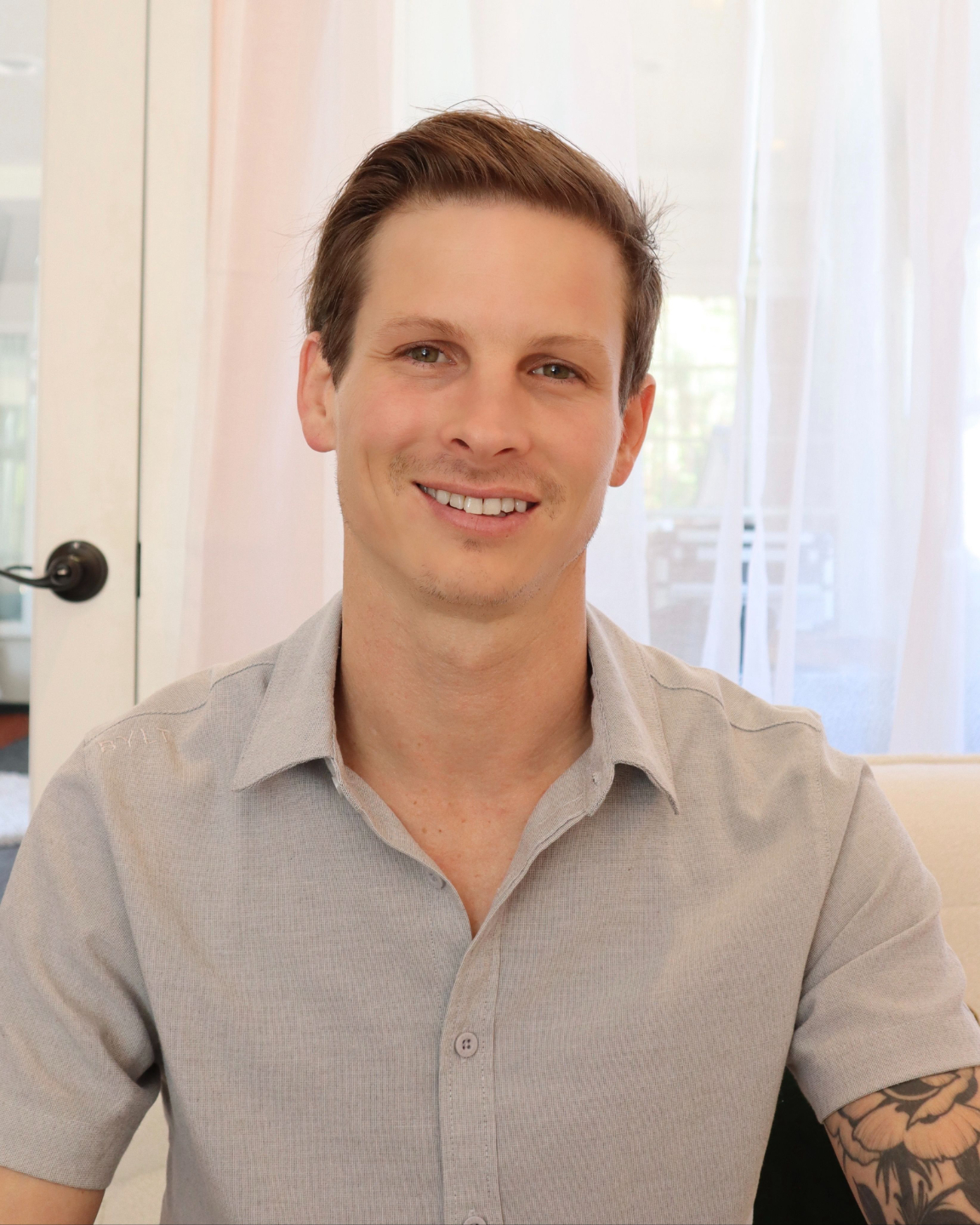
Your Accordion Heading Goes Here
Anim pariatur cliche reprehenderit, enim eiusmod high life accusamus terry richardson ad squid. 3 wolf moon officia aute, non cupidatat skateboard dolor brunch. Food truck quinoa nesciunt laborum eiusmod. Brunch 3 wolf moon tempor, sunt aliqua put a bird on it squid single-origin coffee nulla assumenda shoreditch et. Nihil anim keffiyeh helvetica, craft beer labore wes anderson cred nesciunt sapiente ea proident. Ad vegan excepteur butcher vice lomo. Leggings occaecat craft beer farm-to-table, raw denim aesthetic synth nesciunt you probably haven't heard of them accusamus labore sustainable VHS.
What motivated you to pursue a career in the mental health field?
I wanted to do something meaningful that is similar to what would have helped me during my own years of struggle.
What motivated you to pursue a career in the mental health field?
I wanted to do something meaningful that is similar to what would have helped me during my own years of struggle.
What is your favorite part about working with the population Exist Centers treats?
I understand the different things these individuals are working through. It’s meaningful work, and work that a lot of people don’t understand.
What is your favorite part about working with the population Exist Centers treats?
I understand the different things these individuals are working through. It’s meaningful work, and work that a lot of people don’t understand.
What do you love most about working at Exist Centers?
It’s fun to create something that helps people and does good things. It’s also a challenge, which is important, because it keeps me thinking.
What do you love most about working at Exist Centers?
It’s fun to create something that helps people and does good things. It’s also a challenge, which is important, because it keeps me thinking.
Jessica Flores, BA
Professional Questions
Human & Personal Life Questions
What is your area of expertise in mental health, and how long have you been practicing?
Coming soon...
What motivated you to pursue a career in the mental health field?
Coming soon...
What is your favorite part about working with the population Exist Centers treats?
Coming soon...
What do you love most about working at Exist Centers?
Coming soon...
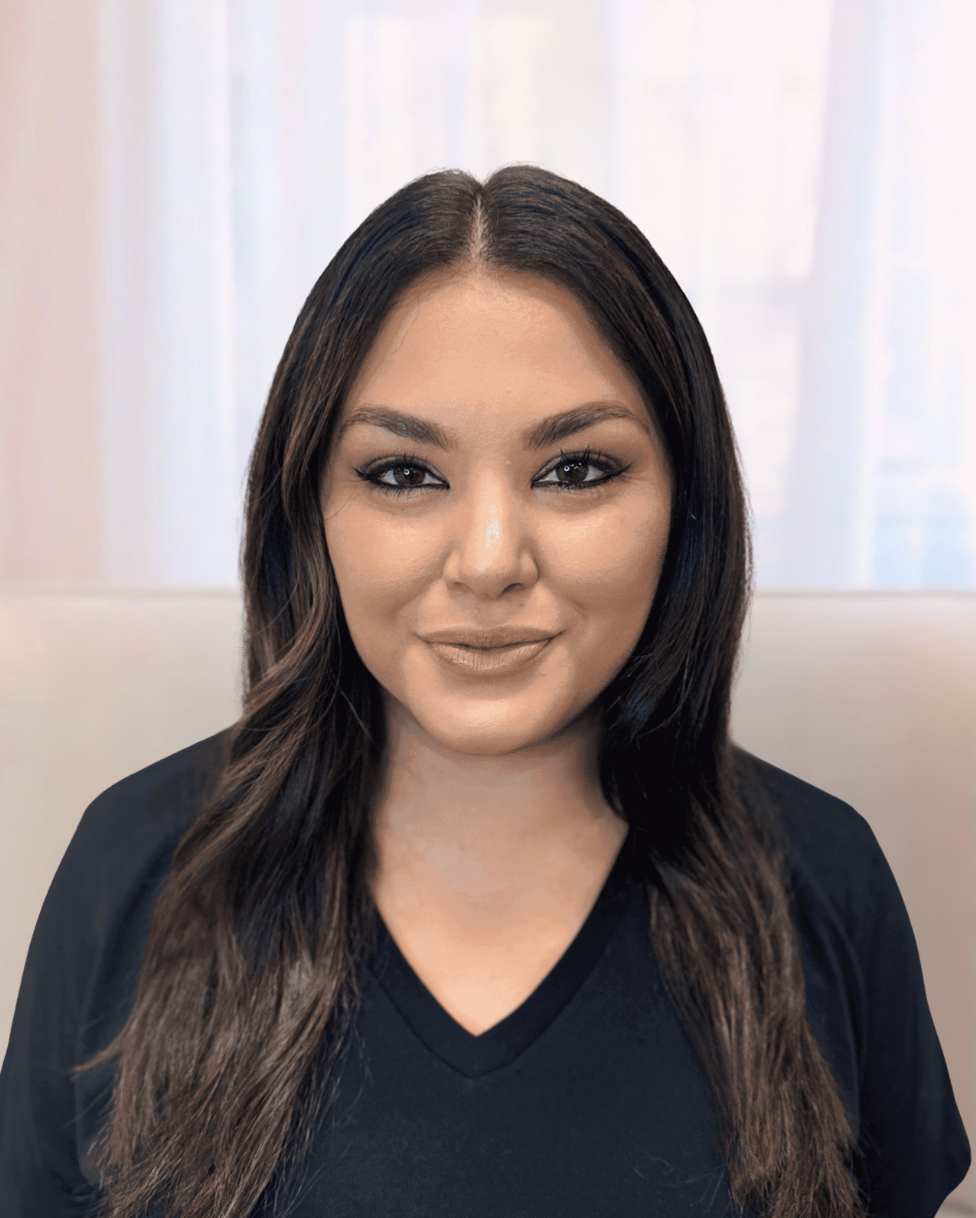
What is one experience in your life that has shaped who you are today?
Coming soon...
What is something that brings you joy outside of work?
Coming soon...
What drives your passion for helping others?
Coming soon...
How do you prioritize self-care in your daily life?
Coming soon...
What makes you feel grateful to be alive, or what makes you feel glad to exist?
Coming soon...
Jessica Flores, BA
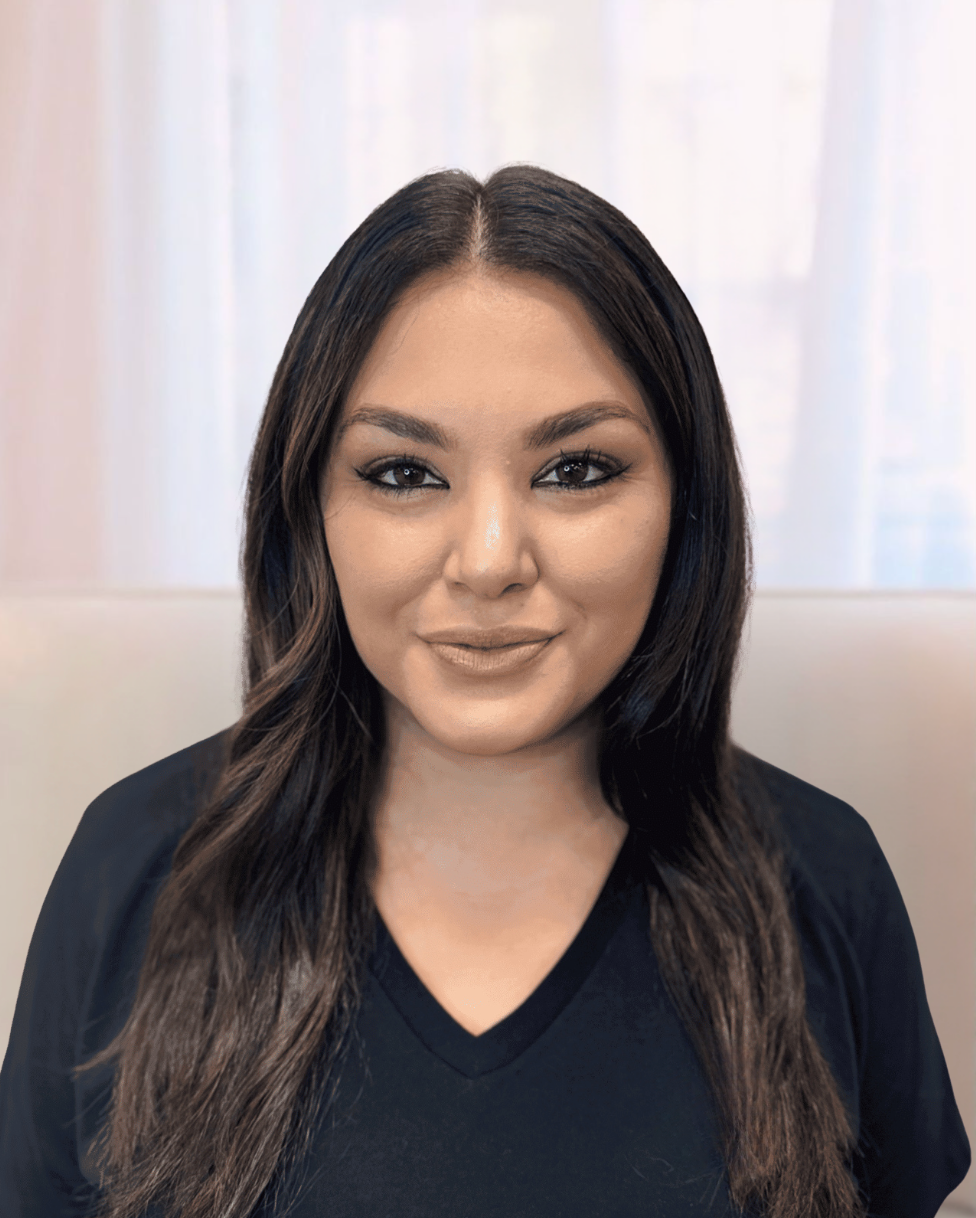
Professional Questions
What is your area of expertise in mental health, and how long have you been practicing?
Coming soon...
What motivated you to pursue a career in the mental health field?
Coming soon...
What is your favorite part about working with the population Exist Centers treats?
Coming soon...
What do you love most about working at Exist Centers?
Coming soon...
Human & Personal Life Questions
What is one experience in your life that has shaped who you are today?
Coming soon...
What is something that brings you joy outside of work?
Coming soon...
What drives your passion for helping others?
Coming soon...
How do you prioritize self-care in your daily life?
Coming soon...
What makes you feel grateful to be alive, or what makes you feel glad to exist?
Coming soon...
Licensed Psychotherapist
Licensed Psychotherapist
Mikaela Karpinski, LCSW
Professional Questions
Human & Personal Life Questions
What is your area of expertise in mental health, and how long have you been practicing?
I specialize in adolescent care, substance use disorders, eating and feeding disorders, self-harming behaviors, and crisis management. I am a registered Licensed Clinical Social Worker and hold my license in CA. I have had the opportunity to work in this field for about 7 years. My identity and passion in my career have centered on sitting within people’s crises and providing support as people recognize their strength within themselves and their community.
What motivated you to pursue a career in the mental health field?
Growing up in a home that consisted of chronic substance use, emotional abuse, and fear, I quickly learned how to hide myself and live in shame. When I began my social work program, all I knew was I wanted to be a part of people’s darkest and brightest moments. It has been nothing less than a divine privilege to see people become more of themselves and more at home within their minds and bodies. To be accurately seen and accepted is a gift - I am motivated to utilize my skill sets and education to provide people with emotional safety and clinical attention.
What is your therapeutic approach, and how do you believe it benefits clients?
My therapeutic approach is based on utilizing a Systems and Narrative approach, Dialectal Behavioral skill sets, Acceptance and Commitment therapy, and integrating existential therapy practices. Ultimately, I believe these approaches give clients the opportunity to reframe their experiences in a way that provides understanding and peace within their past, compassion for their present, and hope and trust for their future. Making your brain and body home again requires allowing ourselves to feel, grieve, release, and restore pieces of who we are.
What is your favorite part about working with the population Exist Centers treats?
One of the most important and precious qualities I’ve found is folks’ authenticity and inner spirit they have to discover more for themselves. It’s beautiful and healing to help folks see that they have always been worthy of quality clinical care and self-care.
What do you love most about working at Exist Centers?
I love that the work being done and the care being given is coming from such diligent, research-based, and personalized care. It feels so honorable to be apart of something that treats people like they belong exactly as they are.
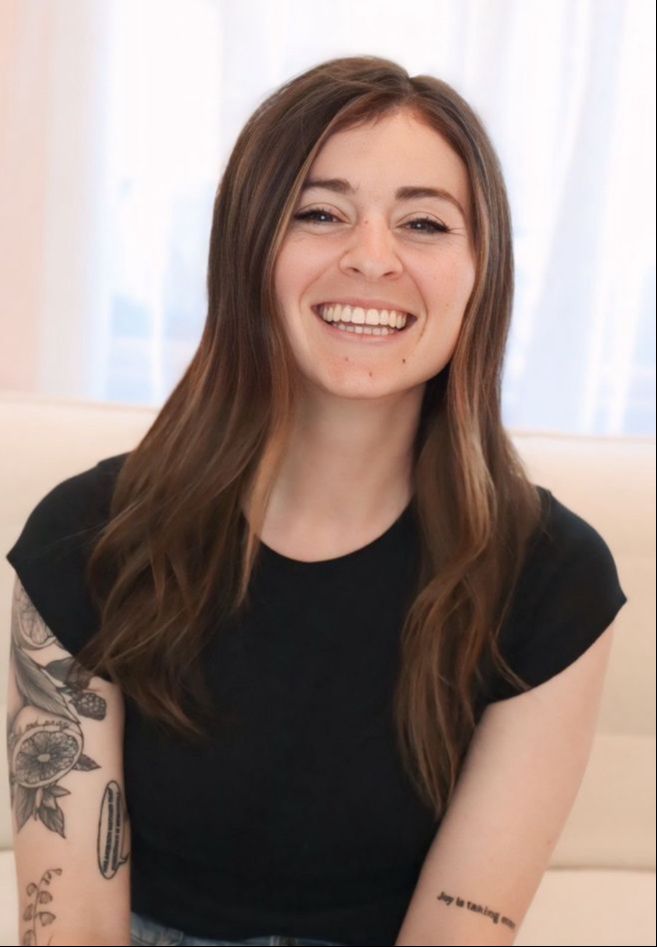
What is one experience in your life that has shaped who you are today?
I experienced a class in graduate school that I will always attribute to who I am today. It caught me in such a vulnerable and tender season of life. It encouraged me to receive care and seek out support like I never have. I finally felt like I had found a piece of myself in my humanity that had been tucked away for a long time.
What is something that brings you joy outside of work?
In my own recovery journey, it has brought me such rest to spend time with my husband and cats in our home. Watching emotional movies and creating tattoo art have been such fun human moments for me outside of work.
What drives your passion for helping others?
Knowing that humankind is so worth it. During one of my first jobs after graduate school, I was sitting with a client at the DMV for 5 hour waiting for her first ID. The moment she received it was one of the most exciting moments in our therapeutic relationship. I realized that a huge passion for me was sitting with people in their discovery that they deserved more than maybe they believed. I feel a passion for people to feel witnessed and connected to their goals and self.
How do you prioritize self-care in your daily life?
My personal journey with self-care is best prioritized through boundaries, advocacy, accountability, and practicing intentionality in slowing down my mind and my day.
What makes you feel grateful to be alive, or what makes you feel glad to exist?
Oh god - so much makes me grateful to exist. Cloudy days, when my cat purrs, when I am able to connect with my inner joy and silliness. Through my recovery journey, healing has brought an abundance of love and care into my life.
Mikaela Karpinski, LCSW
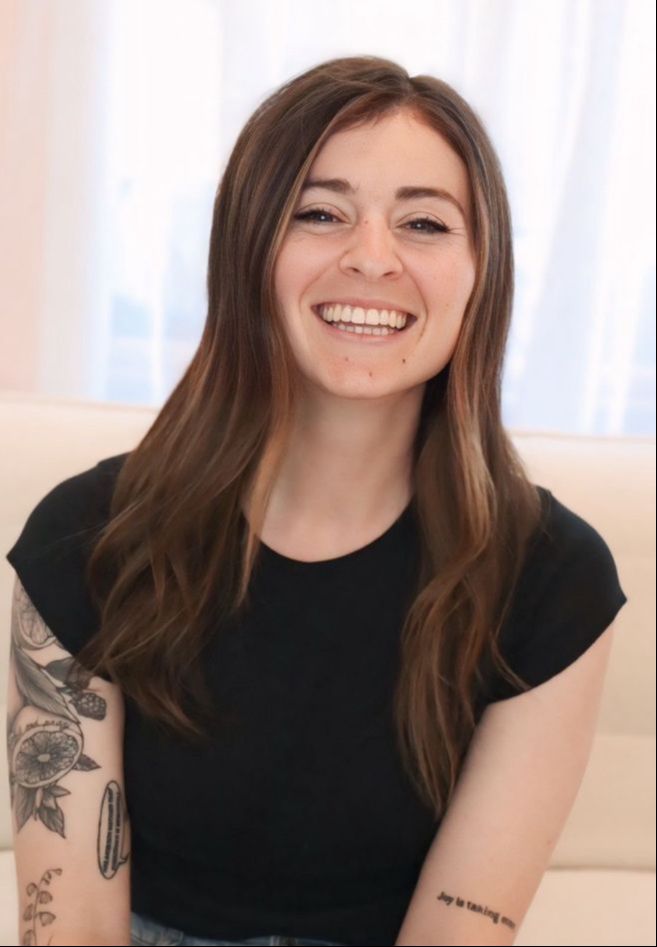
Professional Questions
What is your area of expertise in mental health, and how long have you been practicing?
I specialize in adolescent care, substance use disorders, eating and feeding disorders, self-harming behaviors, and crisis management. I am a registered Licensed Clinical Social Worker and hold my license in CA. I have had the opportunity to work in this field for about 7 years. My identity and passion in my career have centered on sitting within people’s crises and providing support as people recognize their strength within themselves and their community.
What motivated you to pursue a career in the mental health field?
Growing up in a home that consisted of chronic substance use, emotional abuse, and fear, I quickly learned how to hide myself and live in shame. When I began my social work program, all I knew was I wanted to be a part of people’s darkest and brightest moments. It has been nothing less than a divine privilege to see people become more of themselves and more at home within their minds and bodies. To be accurately seen and accepted is a gift - I am motivated to utilize my skill sets and education to provide people with emotional safety and clinical attention.
What is your therapeutic approach, and how do you believe it benefits clients?
My therapeutic approach is based on utilizing a Systems and Narrative approach, Dialectal Behavioral skill sets, Acceptance and Commitment therapy, and integrating existential therapy practices. Ultimately, I believe these approaches give clients the opportunity to reframe their experiences in a way that provides understanding and peace within their past, compassion for their present, and hope and trust for their future. Making your brain and body home again requires allowing ourselves to feel, grieve, release, and restore pieces of who we are.
What is your favorite part about working with the population Exist Centers treats?
One of the most important and precious qualities I’ve found is folks’ authenticity and inner spirit they have to discover more for themselves. It’s beautiful and healing to help folks see that they have always been worthy of quality clinical care and self-care.
What do you love most about working at Exist Centers?
I love that the work being done and the care being given is coming from such diligent, research-based, and personalized care. It feels so honorable to be apart of something that treats people like they belong exactly as they are.
Human & Personal Life Questions
What is one experience in your life that has shaped who you are today?
I experienced a class in graduate school that I will always attribute to who I am today. It caught me in such a vulnerable and tender season of life. It encouraged me to receive care and seek out support like I never have. I finally felt like I had found a piece of myself in my humanity that had been tucked away for a long time.
What is something that brings you joy outside of work?
In my own recovery journey, it has brought me such rest to spend time with my husband and cats in our home. Watching emotional movies and creating tattoo art have been such fun human moments for me outside of work.
What drives your passion for helping others?
Knowing that humankind is so worth it. During one of my first jobs after graduate school, I was sitting with a client at the DMV for 5 hour waiting for her first ID. The moment she received it was one of the most exciting moments in our therapeutic relationship. I realized that a huge passion for me was sitting with people in their discovery that they deserved more than maybe they believed. I feel a passion for people to feel witnessed and connected to their goals and self.
How do you prioritize self-care in your daily life?
My personal journey with self-care is best prioritized through boundaries, advocacy, accountability, and practicing intentionality in slowing down my mind and my day.
What makes you feel grateful to be alive, or what makes you feel glad to exist?
Oh god - so much makes me grateful to exist. Cloudy days, when my cat purrs, when I am able to connect with my inner joy and silliness. Through my recovery journey, healing has brought an abundance of love and care into my life.
Associate Psychotherapist
Associate Psychotherapist
Rachel O'Neil, AMFT
Professional Questions
Human & Personal Life Questions
What is your area of expertise in mental health, and how long have you been practicing?
My areas of expertise are trauma, adoption, personality disorders, couples, and LGBTQ+ affirming care. I have been practicing for roughly two years.
What motivated you to pursue a career in the mental health field?
My motivation to pursue a career in the mental health field stems from my personal experience in therapy throughout my life. I am forever grateful for to all the people that helped me along my journey, and I hope to be able to give back that support to individuals who are struggling.
What is your therapeutic approach, and how do you believe it benefits clients?
I use a trauma-informed integrative approach that includes attachment theory, narrative therapy, cognitive behavioral therapy, and dialectical behavioral therapy. I believe my approach benefits clients because we don’t only focus on changing behaviors and rewriting the narrative, but I’m also able to help clients understand where these behaviors came from.
What is your favorite part about working with the population Exist Centers treats?
My favorite part about working with this population is helping people rediscover their authentic selves and finding their reasons to exist. Being able to walk alongside their incredible journeys is rewarding and life changing.
What do you love most about working at Exist Centers?
I love the warm and intimate setting at Exist Centers. Everyone is treated with the utmost respect and care, and the vibes are positive all around.
What is one experience in your life that has shaped who you are today?
An experience that changed my life was probably the moment I decided I refused to be a statistic and chose a life of intention as opposed to default.
What is something that brings you joy outside of work?
Outside of work I love playing with my pup, spending time in nature, yoga sculpt, and attending improv comedy shows.
What drives your passion for helping others?
Being on the other side of the therapy chair has been life changing. I feel so honored to be able to sit with clients in their most difficult moments and watch them transform. Despite its challenges, helping others gives my soul a warm hug each and every time I am able to give back.
How do you prioritize self-care in your daily life?
In order to help others I have to be pouring from a full cup. Setting boundaries, living intentionally, taking breaks, and making sure I’m constantly checking in with myself and my needs are ways I make sure to refill my cup.
What makes you feel grateful to be alive, or what makes you feel glad to exist?
What makes me feel grateful to be alive is my love for myself in choosing to recreate my life, a life of intention and purpose. I am forever grateful I stopped standing in my own way and can now truly appreciate the beauty that is all around me.
Rachel O'Neil, AMFT
Professional Questions
What is your area of expertise in mental health, and how long have you been practicing?
My areas of expertise are trauma, adoption, personality disorders, couples, and LGBTQ+ affirming care. I have been practicing for roughly two years.
What motivated you to pursue a career in the mental health field?
My motivation to pursue a career in the mental health field stems from my personal experience in therapy throughout my life. I am forever grateful for to all the people that helped me along my journey, and I hope to be able to give back that support to individuals who are struggling.
What is your therapeutic approach, and how do you believe it benefits clients?
I use a trauma-informed integrative approach that includes attachment theory, narrative therapy, cognitive behavioral therapy, and dialectical behavioral therapy. I believe my approach benefits clients because we don’t only focus on changing behaviors and rewriting the narrative, but I’m also able to help clients understand where these behaviors came from.
What is your favorite part about working with the population Exist Centers treats?
My favorite part about working with this population is helping people rediscover their authentic selves and finding their reasons to exist. Being able to walk alongside their incredible journeys is rewarding and life-changing.
What do you love most about working at Exist Centers?
I love the warm and intimate setting at Exist Centers. Everyone is treated with the utmost respect and care, and the vibes are positive all around.
Human & Personal Life Questions
What is one experience in your life that has shaped who you are today?
An experience that changed my life was probably the moment I decided I refused to be a statistic and chose a life of intention as opposed to default.
What is something that brings you joy outside of work?
Outside of work I love playing with my pup, spending time in nature, yoga sculpt, and attending improv comedy shows.
What drives your passion for helping others?
Being on the other side of the therapy chair has been life changing. I feel so honored to be able to sit with clients in their most difficult moments and watch them transform. Despite its challenges, helping others gives my soul a warm hug each and every time I am able to give back.
How do you prioritize self-care in your daily life?
In order to help others I have to be pouring from a full cup. Setting boundaries, living intentionally, taking breaks, and making sure I’m constantly checking in with myself and my needs are ways I make sure to refill my cup.
What makes you feel grateful to be alive, or what makes you feel glad to exist?
What makes me feel grateful to be alive is my love for myself in choosing to recreate my life, a life of intention and purpose. I am forever grateful I stopped standing in my own way and can now truly appreciate the beauty that is all around me.
Associate Psychotherapist
Associate Psychotherapist
Kat Day, ACSW
Professional Questions
Human & Personal Life Questions
What is your area of expertise in mental health, and how long have you been practicing?
I am a CA-state licensed Associate Clinical Social Worker, currently accruing hours toward becoming a Behavioral Therapy (DBT). With six years of experience, I have worked in psychiatric settings and treatment centers for individuals dealing with co-occurring substance use and mental health Licensed Clinical Social Worker. I’m also pursuing certification in Dialectical disorders.
What motivated you to pursue a career in the mental health field?
My own experiences with mental health and addiction, both personally and through loved ones, motivated me to pursue this career. Part of my healing journey is helping others in theirs. I aim to provide hope, strength, and support for those who may not yet see it within themselves.
What is your therapeutic approach, and how do you believe it benefits clients?
I use an Integrative Therapy approach, drawing from Cognitive and Behavioral methods to meet the unique needs of each client. Recovery is not a "one size fits all" process—different strategies work for different people. I believe in working closely with clients to find the best approach that suits them individually.
What is your favorite part about working with the population Exist Centers treats?
Seeing clients undergo profound transformations and rediscover hope is incredibly rewarding. Watching them realize their own humanity and recognize a life worth living is inspiring. I see parts of myself in their journeys and being able to relate while providing tools for growth also helps me in my own healing process.
What do you love most about working at Exist Centers?
Dr. Courtney and my coworkers are wonderful people, and I felt at home the moment I walked through the door. They foster such a warm, loving environment, and I am excited to be part of this supportive team and contribute to the mission.

What is one experience in your life that has shaped who you are today?
One pivotal experience was my decision to ask for help and embrace change. Accepting that I can make mistakes, that I am human, and that I don’t have to face challenges alone has shaped who I am today. These realizations have also influenced my passion for helping others in my career.
What is something that brings you joy outside of work?
I love reading, traveling, trying new foods, and spending time with my family and friends.
What drives your passion for helping others?
Seeing the hope that emerges from clients’ self-transformations is incredibly fulfilling. Watching life return to their eyes and their renewed excitement for living is what motivates me.
How do you prioritize self-care in your daily life?
I take life one day at a time, practicing acceptance, love, and patience with myself and others. I understand that if I don’t care for myself, I won’t be able to help others do the same. Self-care is a priority to maintain my well-being.
What makes you feel grateful to be alive, or what makes you feel glad to exist?
Knowing that I am capable of growth and love, and that my past does not define me. Helping others in this process makes me feel glad to exist.
Kat Day, ACSW
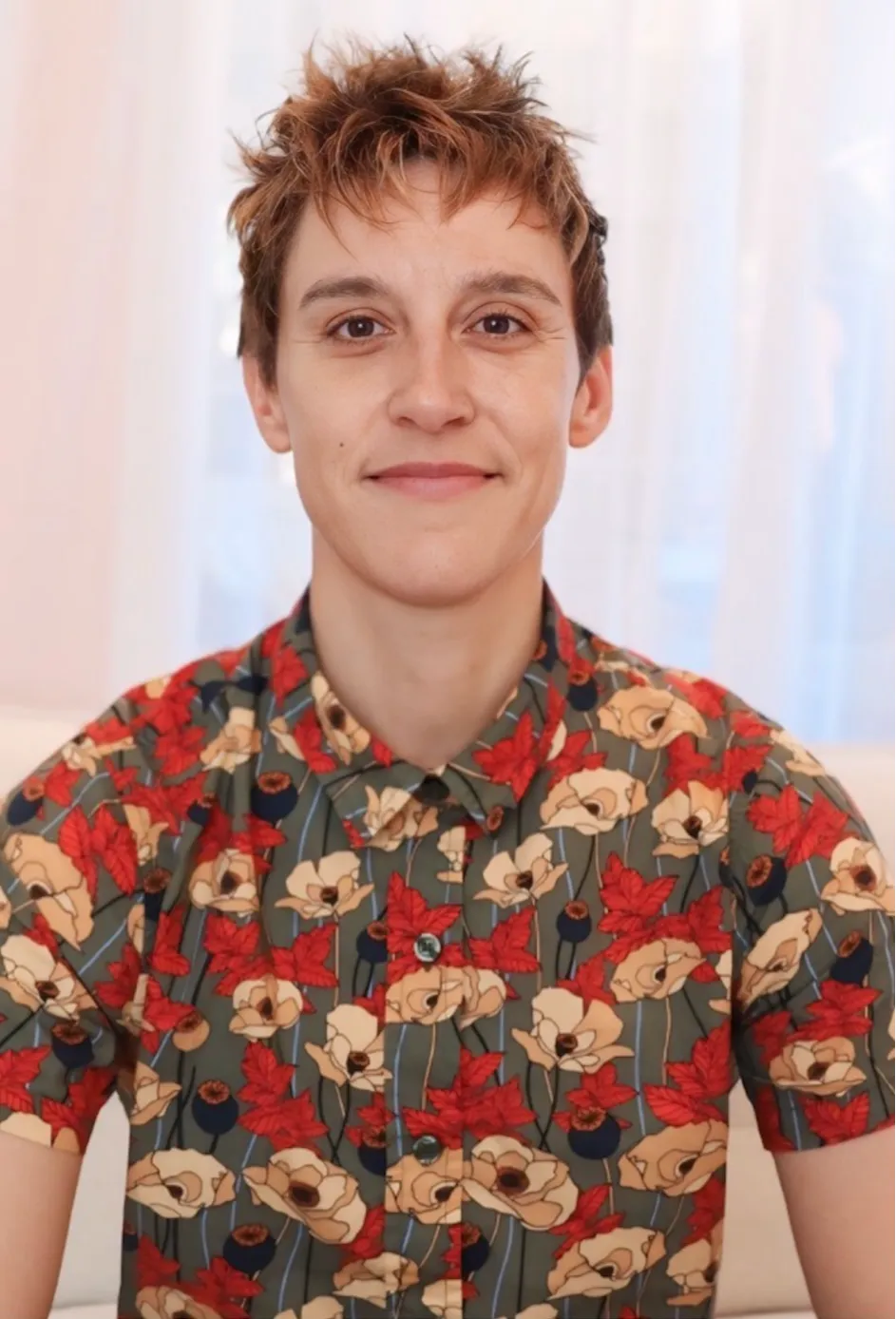
Professional Questions
What is your area of expertise in mental health, and how long have you been practicing?
I am a CA-state licensed Associate Clinical Social Worker, currently accruing hours toward becoming a Behavioral Therapy (DBT). With six years of experience, I have worked in psychiatric settings and treatment centers for individuals dealing with co-occurring substance use and mental health Licensed Clinical Social Worker. I’m also pursuing certification in Dialectical disorders.
What motivated you to pursue a career in the mental health field?
My own experiences with mental health and addiction, both personally and through loved ones, motivated me to pursue this career. Part of my healing journey is helping others in theirs. I aim to provide hope, strength, and support for those who may not yet see it within themselves.
What is your therapeutic approach, and how do you believe it benefits clients?
I use an Integrative Therapy approach, drawing from Cognitive and Behavioral methods to meet the unique needs of each client. Recovery is not a "one size fits all" process—different strategies work for different people. I believe in working closely with clients to find the best approach that suits them individually.
What is your favorite part about working with the population Exist Centers treats?
Seeing clients undergo profound transformations and rediscover hope is incredibly rewarding. Watching them realize their own humanity and recognize a life worth living is inspiring. I see parts of myself in their journeys and being able to relate while providing tools for growth also helps me in my own healing process.
What do you love most about working at Exist Centers?
Dr. Courtney and my coworkers are wonderful people, and I felt at home the moment I walked through the door. They foster such a warm, loving environment, and I am excited to be part of this supportive team and contribute to the mission.
Human & Personal Life Questions
What is one experience in your life that has shaped who you are today?
One pivotal experience was my decision to ask for help and embrace change. Accepting that I can make mistakes, that I am human, and that I don’t have to face challenges alone has shaped who I am today. These realizations have also influenced my passion for helping others in my career.
What is something that brings you joy outside of work?
I love reading, traveling, trying new foods, and spending time with my family and friends.
What drives your passion for helping others?
Seeing the hope that emerges from clients’ self-transformations is incredibly fulfilling. Watching life return to their eyes and their renewed excitement for living is what motivates me.
How do you prioritize self-care in your daily life?
I take life one day at a time, practicing acceptance, love, and patience with myself and others. I understand that if I don’t care for myself, I won’t be able to help others do the same. Self-care is a priority to maintain my well-being.
What makes you feel grateful to be alive, or what makes you feel glad to exist?
Knowing that I am capable of growth and love, and that my past does not define me. Helping others in this process makes me feel glad to exist.
Group Facilitator
Group Facilitator
Steven Shaw
Professional Questions
Human & Personal Life Questions
What is your area of expertise in mental health, and how long have you been practicing?
I specialize in light. I believe that when people begin to see themselves as they truly are, they start living in light. When they live in light, they love themselves better, and when they love themselves more, everything else falls into place. I’ve been sharing this for over 15 years, with 7 years of that in a professional experience.
What motivated you to pursue a career in the mental health field?
I am motivated to help individuals struggling with mental health because I believe every person is inherently valuable and deserving of love and respect. I demonstrate this through providing the highest quality care and education, both personally and within Exist Centers where I serve.
What is your therapeutic approach, and how do you believe it benefits clients?
My approach prioritizes connection. I believe humans thrive when they feel heard and loved. Understanding each individual allows me to tailor the best approach for them, laying the foundation for effective group sessions.
What is your favorite part about working with the population Exist Centers treats?
My favorite part of working with the clients at Exist Centers is the opportunity to speak life and light into the individuals who come to Exist Centers. Watching people learn to love themselves more deeply and set life-changing goals is the most rewarding experience.
What do you love most about working at Exist Centers?
I love Exist Centers because, having worked at many different recovery centers, I’ve found the intentionality, love, and knowledge here to be exceptional. Simply put, the vibe is perfect.
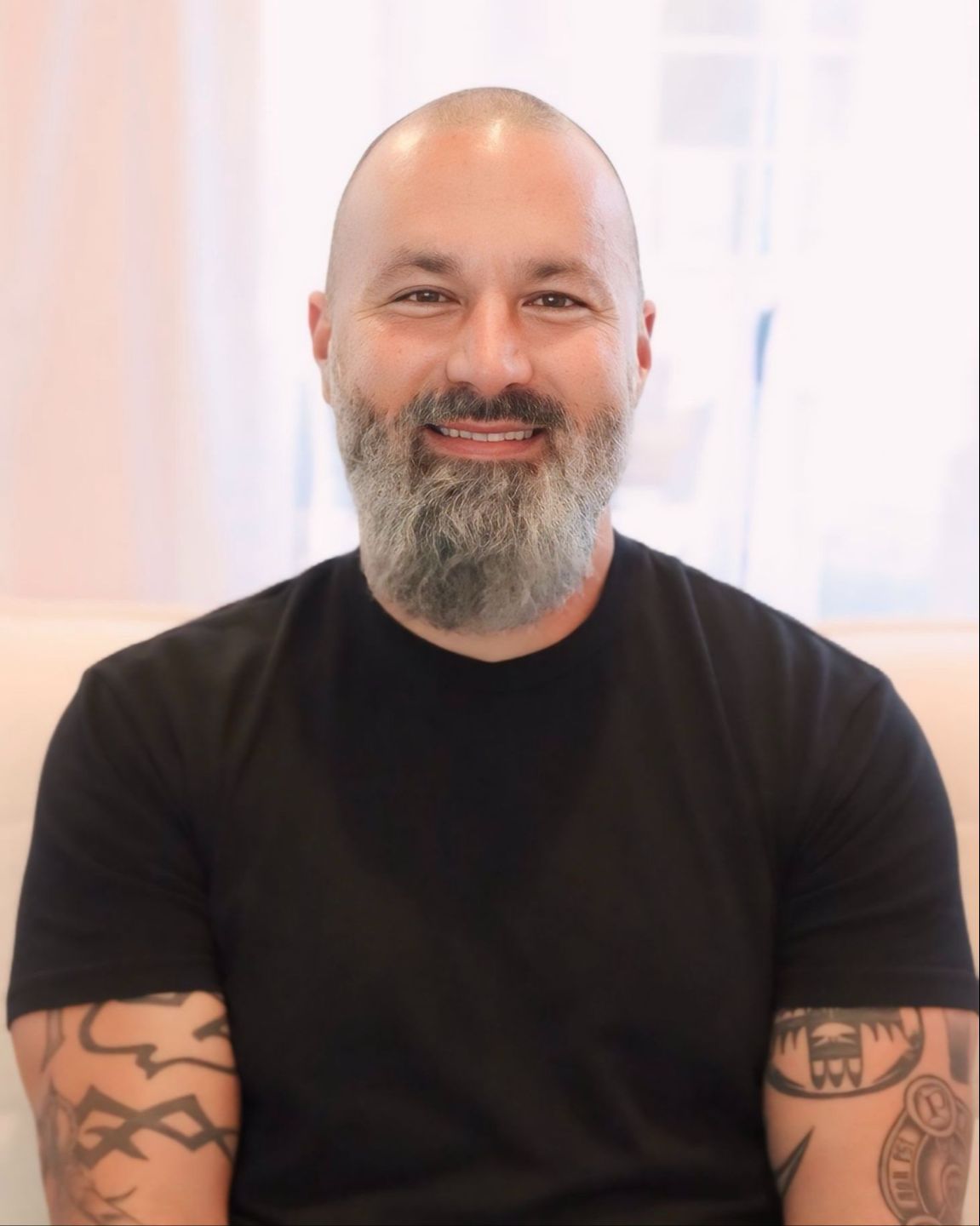
What is one experience in your life that has shaped who you are today?
The most powerful experience in my life has been getting to know Jesus. He shapes everything I do, and I strive to live the life He modeled for us. He loved people in the way I want to love them.
What is something that brings you joy outside of work?
My family is one of my greatest joys in life. My wife and two kids are my motivation. I also have a deep passion for creating and performing music.
What drives your passion for helping others?
My belief system calls me to serve others. I strive to love and respect everyone I encounter, always prioritizing their needs above my own.
How do you prioritize self-care in your daily life?
I prioritize self-care by recognizing when to be still. With so much going on and my love for creating and working, knowing when to pause is a powerful tool for renewal.
What makes you feel grateful to be alive, or what makes you feel glad to exist?
I am grateful to be alive because I believe I am living out my most important calling. Seeing tangible changes in people through the work I do is incredibly fulfilling. Even when I struggle with my own existence, I know I must continue for the love of others. The fruit of my life gives my existence meaning.
Steven Shaw
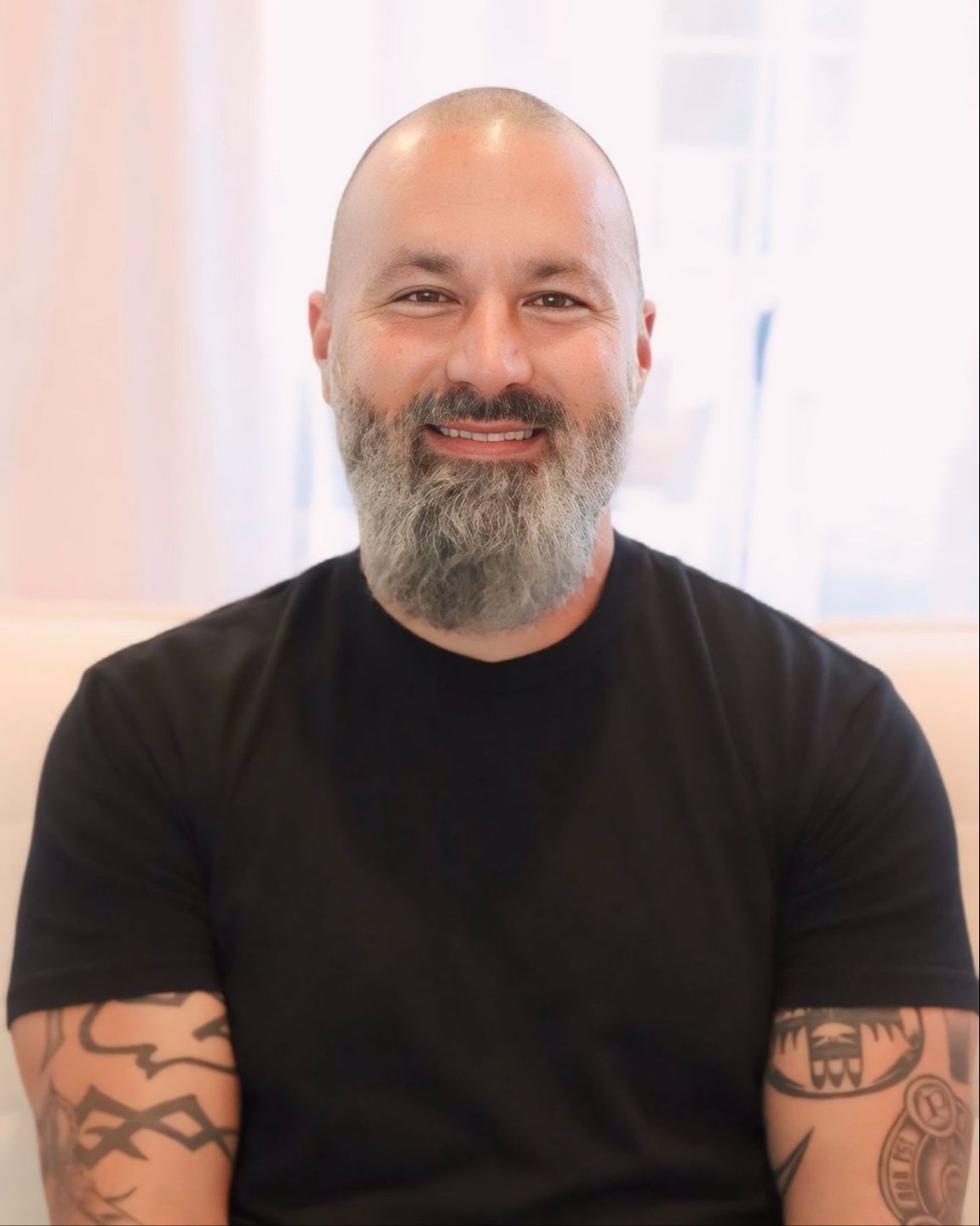
Professional Questions
What is your area of expertise in mental health, and how long have you been practicing?
I specialize in light. I believe that when people begin to see themselves as they truly are, they start living in light. When they live in light, they love themselves better, and when they love themselves more, everything else falls into place. I’ve been sharing this for over 15 years, with 7 years of that in a professional experience.
What motivated you to pursue a career in the mental health field?
I am motivated to help individuals struggling with mental health because I believe every person is inherently valuable and deserving of love and respect. I demonstrate this through providing the highest quality care and education, both personally and within Exist Centers where I serve.
What is your therapeutic approach, and how do you believe it benefits clients?
My approach prioritizes connection. I believe humans thrive when they feel heard and loved. Understanding each individual allows me to tailor the best approach for them, laying the foundation for effective group sessions.
What is your favorite part about working with the population Exist Centers treats?
My favorite part of working with the clients at Exist Centers is the opportunity to speak life and light into the individuals who come to Exist Centers. Watching people learn to love themselves more deeply and set life-changing goals is the most rewarding experience.
What do you love most about working at Exist Centers?
I love Exist Centers because, having worked at many different recovery centers, I’ve found the intentionality, love, and knowledge here to be exceptional. Simply put, the vibe is perfect.
Human & Personal Life Questions
What is one experience in your life that has shaped who you are today?
The most powerful experience in my life has been getting to know Jesus. He shapes everything I do, and I strive to live the life He modeled for us. He loved people in the way I want to love them.
What is something that brings you joy outside of work?
My family is one of my greatest joys in life. My wife and two kids are my motivation. I also have a deep passion for creating and performing music.
What drives your passion for helping others?
My belief system calls me to serve others. I strive to love and respect everyone I encounter, always prioritizing their needs above my own.
How do you prioritize self-care in your daily life?
I prioritize self-care by recognizing when to be still. With so much going on and my love for creating and working, knowing when to pause is a powerful tool for renewal.
What makes you feel grateful to be alive, or what makes you feel glad to exist?
I am grateful to be alive because I believe I am living out my most important calling. Seeing tangible changes in people through the work I do is incredibly fulfilling. Even when I struggle with my own existence, I know I must continue for the love of others. The fruit of my life gives my existence meaning.
Somatic Practitioner
Somatic Practitioner
Maggie Scotto, BS, RADT, RYT-500
Professional Questions
Human & Personal Life Questions
What is your area of expertise in mental health, and how long have you been practicing?
My area of expertise is in Somatic Modalities, and I have been incorporating them into mental health and substance use disorder facilities for the past five years.
What motivated you to pursue a career in the mental health field?
What motivated me to pursue a career in the mental health field was my long-term feeling of misunderstanding. I struggled to find a place where I was truly heard and supported. Now, I am passionate about understanding each person without judgment and creating a welcoming, safe space for individuals. I want to offer others the same understanding and care that I once sought.
What is your therapeutic approach, and how do you believe it benefits clients?
My therapeutic approach focuses on understanding the person as a whole—mind, body, and spirit. I use somatic techniques to help clients connect with their bodies and gain tools for emotional regulation. I aim to create a safe, non-judgmental space where clients feel comfortable exploring their experiences and finding healing.
What is your favorite part about working with the population Exist Centers treats?
I was misunderstood for a long time and never found a place where I could relate or listen, and the Exist team invites such a beautiful space for people who need a place to belong and be understood.
What do you love most about working at Exist Centers?
I love being part of a team that truly works together in the best interest of each client in our care. The environment feels collaborative and supportive for everyone who walks through our doors. I can honestly say that the moment you step into Exist, you can feel the heart and warmth of the place.
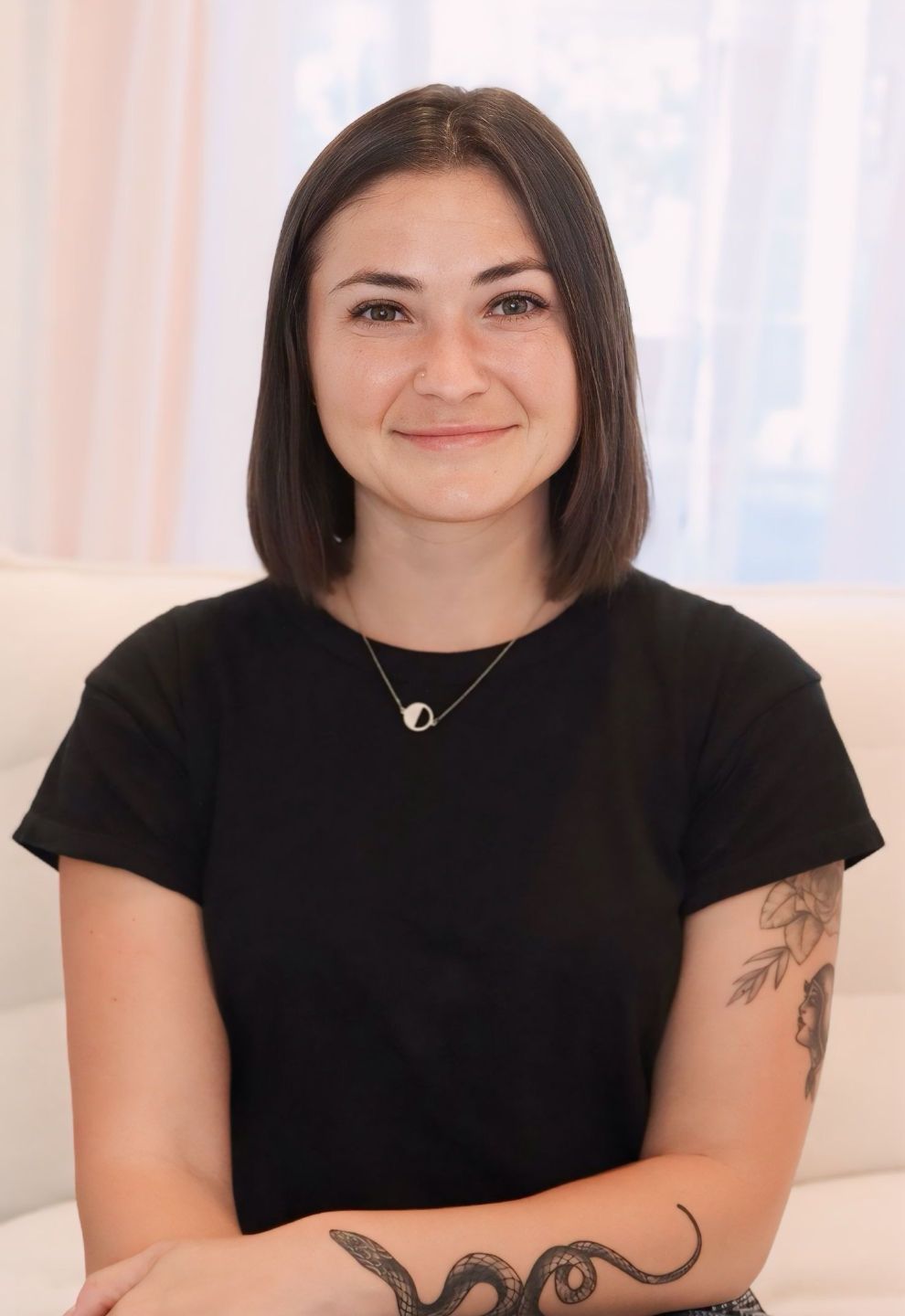
What is one experience in your life that has shaped who you are today?
My solo trip to India was a transformative milestone in my recovery journey. Exploring such a vibrant and beautiful country on my own taught me meaningful lessons about my resilience and sense of self. It was a profoundly enriching experience that shaped my personal growth in ways I could have never anticipated.
What is something that brings you joy outside of work?
I am a people person, so spending time with my friends and loved ones will always fill my joy cup. I also love to be on the road, traveling in my van or somewhere in nature.
What drives your passion for helping others?
Helping others is my dharma. I believe everything I have experienced has guided me to my true purpose: helping others. I do not believe we are meant to struggle or face challenges alone, and it’s an honor to be part of someone's journey back to peace and safety within themselves.
How do you prioritize self-care in your daily life?
For me, self-care varies from day to day, but it always involves connecting with myself in a meaningful way. Whether it's cooking a delicious meal after a long day, taking a walk to enjoy the sunset, or curling up in bed with a good book, it’s about doing something that nourishes and enriches my spirit.
What makes you feel grateful to be alive, or what makes you feel glad to exist?
Becoming sober has really blessed me with a deeper sense of gratitude and joy for my existence. One of my biggest joys has been becoming an auntie and experiencing that pure kind of love. Besides that, meeting so many wonderful people and being present in life's everyday moments has been really meaningful.
Maggie Scotto, BS, RADT, RYT-500
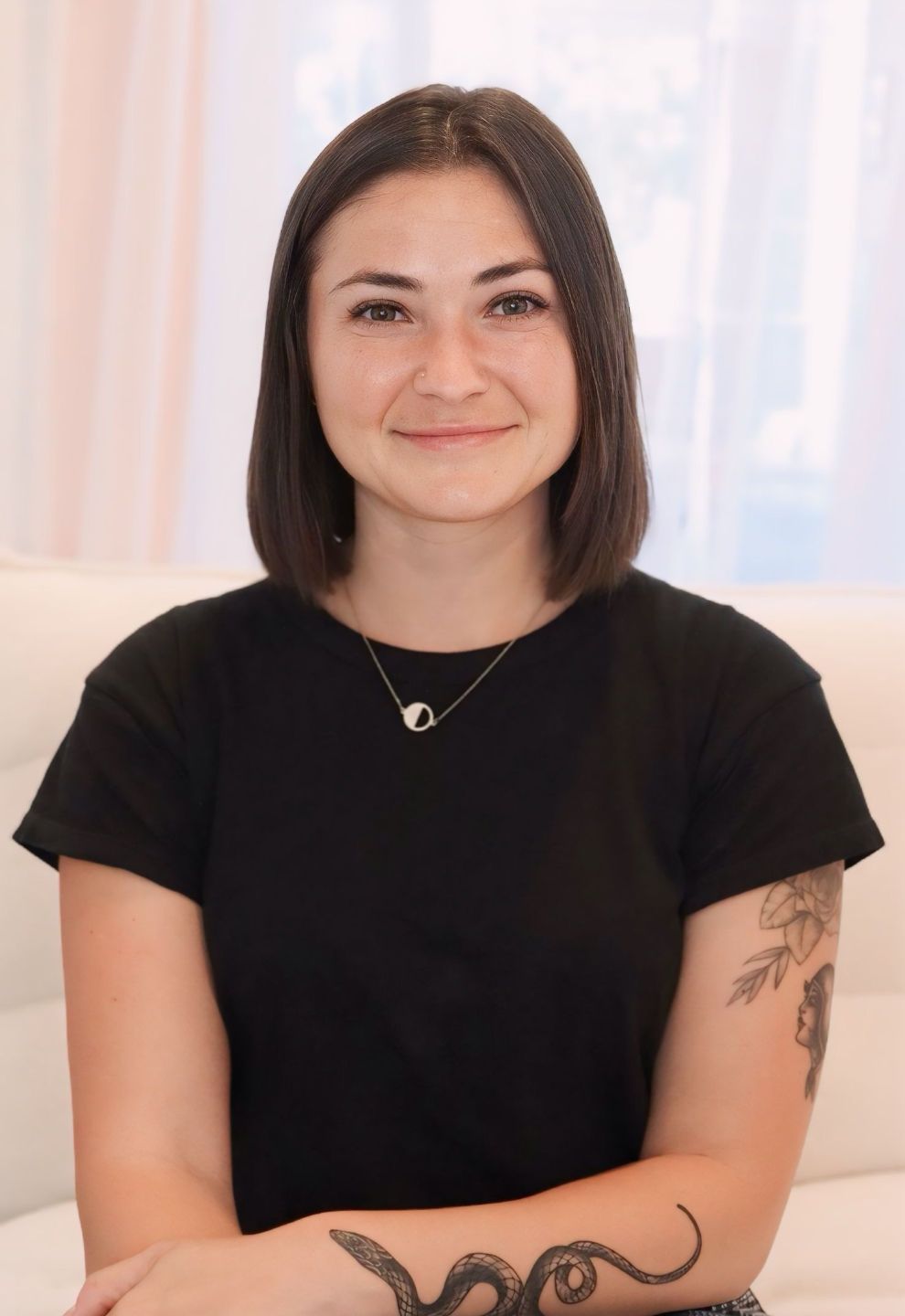
Professional Questions
What is your area of expertise in mental health, and how long have you been practicing?
My area of expertise is in Somatic Modalities, and I have been incorporating them into mental health and substance use disorder facilities for the past five years.
What motivated you to pursue a career in the mental health field?
What motivated me to pursue a career in the mental health field was my long-term feeling of misunderstanding. I struggled to find a place where I was truly heard and supported. Now, I am passionate about understanding each person without judgment and creating a welcoming, safe space for individuals. I want to offer others the same understanding and care that I once sought.
What is your therapeutic approach, and how do you believe it benefits clients?
My therapeutic approach focuses on understanding the person as a whole—mind, body, and spirit. I use somatic techniques to help clients connect with their bodies and gain tools for emotional regulation. I aim to create a safe, non-judgmental space where clients feel comfortable exploring their experiences and finding healing.
What is your favorite part about working with the population Exist Centers treats?
I was misunderstood for a long time and never found a place where I could relate or listen, and the Exist team invites such a beautiful space for people who need a place to belong and be understood.
What do you love most about working at Exist Centers?
I love being part of a team that truly works together in the best interest of each client in our care. The environment feels collaborative and supportive for everyone who walks through our doors. I can honestly say that the moment you step into Exist, you can feel the heart and warmth of the place.
Human & Personal Life Questions
What is one experience in your life that has shaped who you are today?
My solo trip to India was a transformative milestone in my recovery journey. Exploring such a vibrant and beautiful country on my own taught me meaningful lessons about my resilience and sense of self. It was a profoundly enriching experience that shaped my personal growth in ways I could have never anticipated.
What is something that brings you joy outside of work?
I am a people person, so spending time with my friends and loved ones will always fill my joy cup. I also love to be on the road, traveling in my van or somewhere in nature.
What drives your passion for helping others?
Helping others is my dharma. I believe everything I have experienced has guided me to my true purpose: helping others. I do not believe we are meant to struggle or face challenges alone, and it’s an honor to be part of someone's journey back to peace and safety within themselves.
How do you prioritize self-care in your daily life?
For me, self-care varies from day to day, but it always involves connecting with myself in a meaningful way. Whether it's cooking a delicious meal after a long day, taking a walk to enjoy the sunset, or curling up in bed with a good book, it’s about doing something that nourishes and enriches my spirit.
What makes you feel grateful to be alive, or what makes you feel glad to exist?
Becoming sober has really blessed me with a deeper sense of gratitude and joy for my existence. One of my biggest joys has been becoming an auntie and experiencing that pure kind of love. Besides that, meeting so many wonderful people and being present in life's everyday moments has been really meaningful.
Medical Directors
Medical Directors
Dr. Randall Turner, DO

Dr. Randall Turner embarked on his distinguished medical career after receiving his degree from Touro University Nevada College of Osteopathic Medicine, further specializing in Psychiatry with a residency at Loma Linda University. Recognized for his expertise with board certifications in Psychiatry and Addiction Medicine by the American Board of Preventive Medicine, Dr. Turner has become a cornerstone in his field. As a founding member of the Progeny Psychiatric Group, he is deeply committed to understanding and treating various aspects of human psychology and psychopathology, focusing on general adult psychiatry, geriatric psychiatry, and addiction medicine. His holistic approach aims to alleviate suffering and foster the growth of his patients, combining compassion with comprehensive care.
Beyond his clinical practice, Dr. Turner is also a passionate musician, proficient in guitar, piano, and drums, which complements his medical profession by offering a unique blend of creativity and healing. His interests extend to reading, bird watching, and traveling, enriching his personal and professional life with diverse experiences and a deep appreciation for nature and cultures around the world. Residing in Southern California with his wife and four children, Dr. Turner's life is a testament to a balance between professional dedication, artistic expression, and family, embodying excellence, talent, and integrity that resonate both within and beyond the medical community.
Dr. Randall Turner, DO

Dr. Randall Turner embarked on his distinguished medical career after receiving his degree from Touro University Nevada College of Osteopathic Medicine, further specializing in Psychiatry with a residency at Loma Linda University. Recognized for his expertise with board certifications in Psychiatry and Addiction Medicine by the American Board of Preventive Medicine, Dr. Turner has become a cornerstone in his field. As a founding member of the Progeny Psychiatric Group, he is deeply committed to understanding and treating various aspects of human psychology and psychopathology, focusing on general adult psychiatry, geriatric psychiatry, and addiction medicine. His holistic approach aims to alleviate suffering and foster the growth of his patients, combining compassion with comprehensive care.
Beyond his clinical practice, Dr. Turner is also a passionate musician, proficient in guitar, piano, and drums, which complements his medical profession by offering a unique blend of creativity and healing. His interests extend to reading, bird watching, and traveling, enriching his personal and professional life with diverse experiences and a deep appreciation for nature and cultures around the world. Residing in Southern California with his wife and four children, Dr. Turner's life is a testament to a balance between professional dedication, artistic expression, and family, embodying excellence, talent, and integrity that resonate both within and beyond the medical community.
Dr. Nathan Ngo
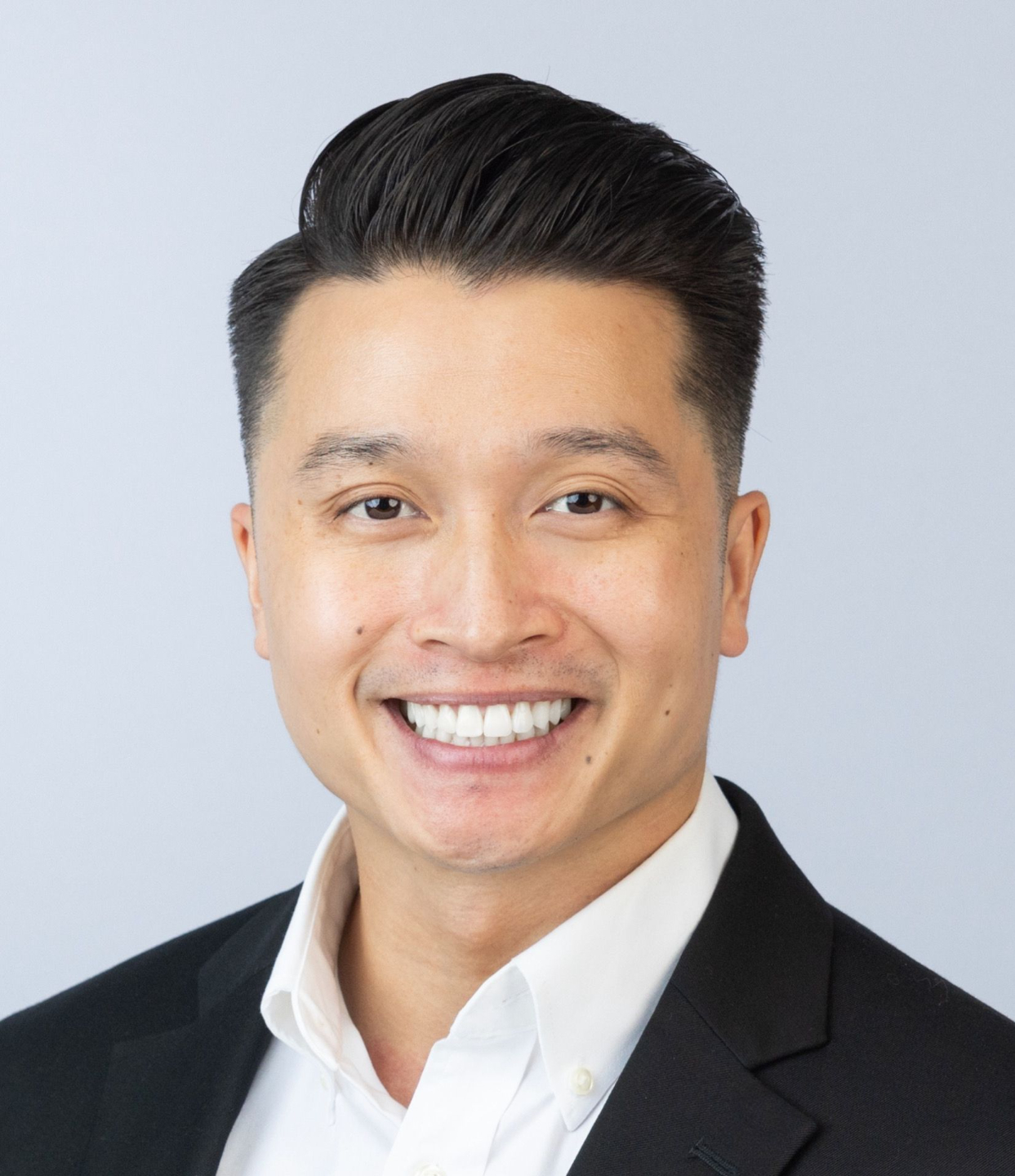
Nathan Ngo is committed to enhancing access to and the quality of mental health care. Fluent in both English and Vietnamese, he specializes in a diverse array of psychiatric conditions, including mood disorders, anxiety disorders, personality disorders, and trauma-related issues.
He is dedicated to providing compassionate, evidence-based care while actively participating in community outreach and mental health advocacy.
In his leisure time, Nathan enjoys discovering new culinary experiences, weightlifting, and spending quality moments with his family, valuing the importance of connection and overall well-being.
Nathan Ngo is committed to enhancing access to andd issues.
He is dedicated to providing compassionate, evidence-based care while actively participating in community outreach and mental health advocacy.
Nathan Ngo is committed to enhancing access to and trauma-related issues.
He is dedicated to providing compassionate, evidence-based care while actively participating in community outreach and mental health advocacy.
Dr. Nathan
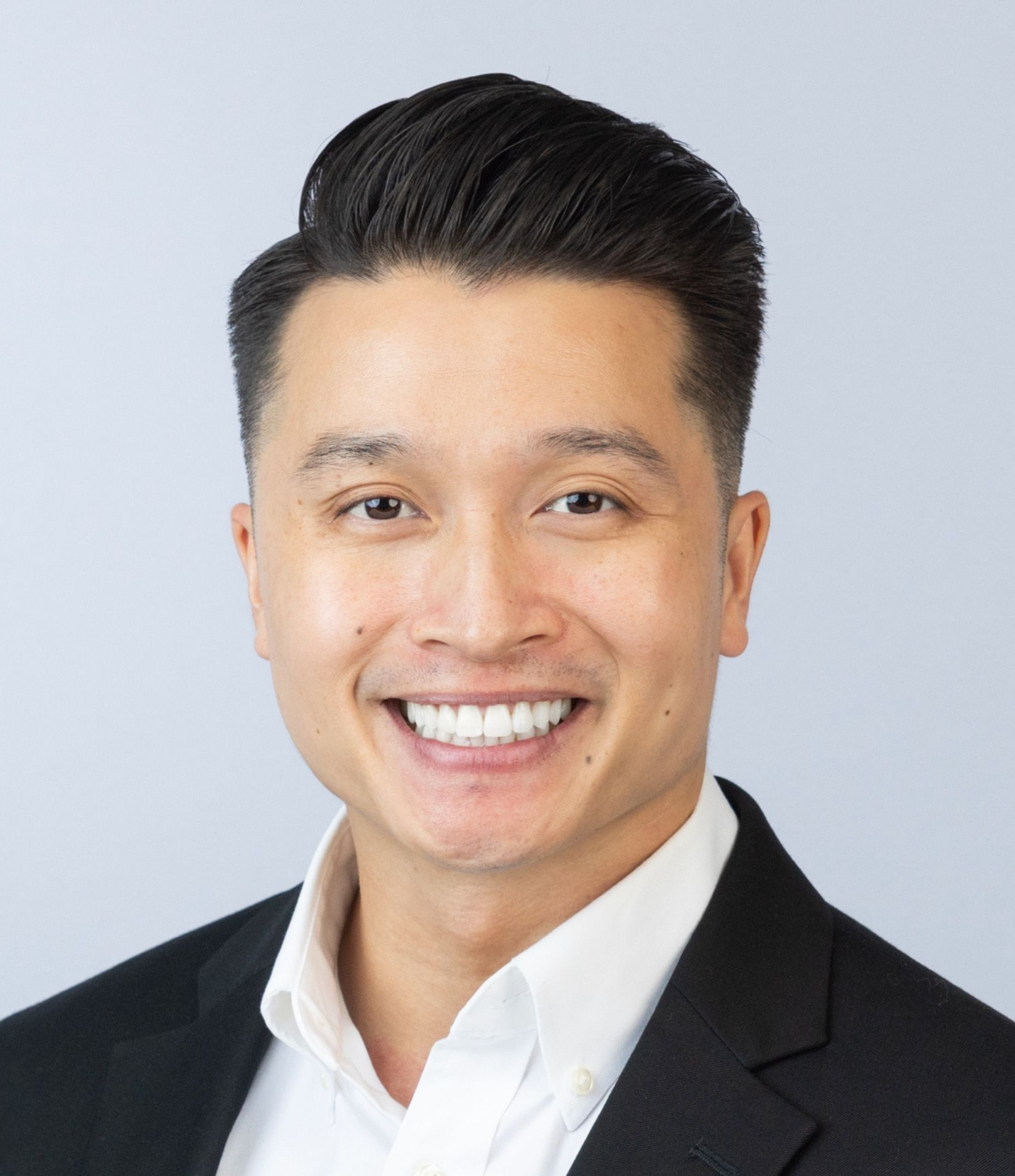
Nathan Ngo is committed to enhancing access to and the quality of mental health care. Fluent in both English and Vietnamese, he specializes in a diverse array of psychiatric conditions, including mood disorders, anxiety disorders, personality disorders, and trauma-related issues.
He is dedicated to providing compassionate, evidence-based care while actively participating in community outreach and mental health advocacy.
In his leisure time, Nathan enjoys discovering new culinary experiences, weightlifting, and spending quality moments with his family, valuing the importance of connection and overall well-being.

 Outpatient Treatment Programs, call us at
Outpatient Treatment Programs, call us at 